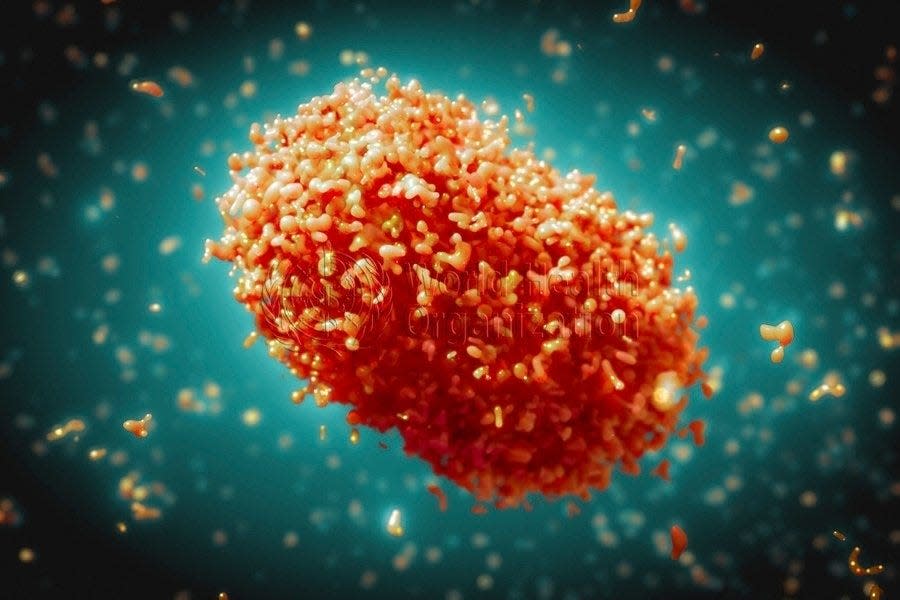First case of monkeypox identified in Louisiana resident
The Louisiana Department of Health reported the first detected case of monkeypox infection in a Louisiana resident on Thursday.
The individual is from the department's Region 1, which includes Orleans, Plaquemines, Jefferson, St. Bernard parishes. The agency said it would not give more information about the person, such as age or sex, until there were enough cases to be able to report the data and shield patient confidentiality.
An out-of-state resident visiting Louisiana also tested positive for monkeypox.
Monkeypox is a viral illness that typically involves flu-like symptoms, swelling of the lymph nodes and a rash that includes bumps that are initially filled with fluid before scabbing over.
Some people get a rash first, followed by other symptoms. Others only experience a rash. Some cases in the current U.S. outbreak have experienced only isolated rashes in the genital region or other body parts, which can lead to confusion between monkeypox and some sexually transmitted diseases.
Monkeypox is most commonly spread through direct contact with the sores.
"This is not ebola. This is not COVID. This is not expected to erupt into a worldwide pandemic that will mostly alter our way of life," said Louisiana State Health Officer Dr. Joseph Kanter. "That said, it is something important. It's something that we need to be paying attention to."

It can also spread through contact with clothing, bedding and other items used by a person with monkeypox, or from respiratory droplets that can be passed through prolonged face-to-face contact, including kissing, cuddling or sex.
It can also be passed on to humans through infected animals, including by eating their meat.
Those who are asymptomatic can't spread the disease.
Most infections last two to four weeks.
The Health Department said there are likely more undiagnosed human cases of monkeypox in the state.
"Right now, the widely held belief is that there is more monkeypox circulating in this country than has been formally identified and diagnosed," Kanter said.
"There are a few reasons for that," he added. "Testing is not as widespread as it perhaps could be, there's a long incubation period on this, some individuals might misinterpret their lesion for something else, and some individuals just might not go get checked out at a clinic or private doctor at all.
Since May, 605 monkeypox cases have been identified in 36 states. There have been more than 7200 cases globally.
According to the CDC, early data suggest that gay, bisexual and other men who have sex with men make up a high number of cases and are at the highest risk of infection. However, anyone who has been in close contact with someone who has monkeypox is at risk.
If you believe you have been exposed or infected or are awaiting a test result, refrain from intimate or close contact with others and seek medical attention.
Standard household cleaners are effective at cleaning surfaces and clothes.
If your test is positive, stay isolated until your rash has healed, all scabs have fallen off, and a fresh layer of intact skin has formed.
This article originally appeared on Shreveport Times: LDH identifies first monkeypox case in a Louisiana resident

